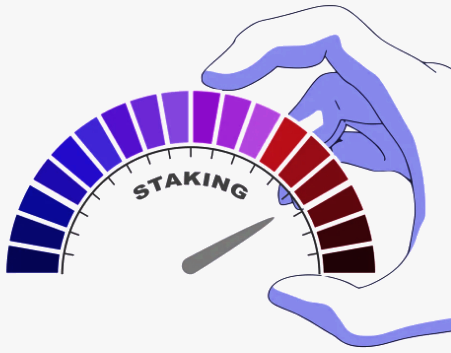Accredited InvestorsAltcoinAnatoli UnitskyAnti-Money Laundering (AML) In CryptoAPIArbitrageArtCoin TokenArticle DirectoryASICAuction Terminology GlossaryBasics of Stock Market InvestingBear MarketBest Crypto Payment Provider In the WorldBitcoinBlockchainBlockchain ConfirmationBlockchain Consensus MechanismBlockchain ForkBlockchain GlossaryBored Ape Yacht ClubBuild a Business That OutperformsBull MarketBuying SkyWay SharesByzantine Fault Tolerance (BFT) ExplainedCasascius CoinCentral Bank Digital Currency (CBDC)Centralized Crypto ExchangeCoinCoinsetCold WalletCollateralCommodity Futures Trading Commission (CFTC)Cross-Chain TechnologyCRUCrypto ExchangeCrypto GlossaryCrypto JokesCrypto Terms to KnowCrypto TickerCryptocurrencyCryptographyCryptojackingCryptounit BlockchainCryptounit GlossaryCryptounit ProgramdApp (Decentralized Application)Dead CoinDecentralized Exchange (DEX)Decentralized Finance (DeFi)Difference Between Bitcoin and EthereumDifferent Ways of Investing MoneyDigital CurrencyDistributed LedgerDo Your Own Research (DYOR)Dollar Cost Averaging (DCA)Dow Jones Industrial Average (DJIA)EncryptionERC-20ERC-721EthereumEvoScentFear Of Missing Out (FOMO)Fear, Uncertainty and Doubt (FUD)Fiat MoneyFNT Fintech CompanyGenesis BlockGlobal Unit PayGlossary of Banking TermsGlossary of Business TermsGlossary of Financial TermsHalvingHODLHot WalletHow Do I Start InvestingHow Rich is Satoshi Nakamoto?How to Create a BlockchainHow to Find Private InvestorsHow to Get Into FintechHow to Program Smart ContractsI Am Thrilled to Be a Part of This Global ProjectInitial Coin Offering (ICO)Initial Public Offering (IPO)Initial Token Offering (ITO)Innovation Basalt TechnologyInnovative Transportation TechnologiesInternational Bank Account Number (IBAN)Investing in Gold Mining StocksInvesting in Gold MiningJagerJoy of Missing Out (JOMO)Know Your Customer (KYC)LedgerLiquidity in CryptocurrencyMaker and Taker Fees in Crypto TradingMarket Capitalization (Market Cap)Meme CoinMetal Credit CardMetaMaskMillenials Now Have Access to Generational WealthMy Best Investment EverNew Digital EvolutionNFT GlossaryOff-Chain TransactionsOn-Chain TransactionsOpen Edition NFTPeer-to-Peer (P2P)Personal Loan GlossaryProbably the Best STO on the MarketProof of Stake (PoS)Real Estate Glossary of TermsReal Estate Investing GlossaryRebase TokenSecurities and Exchange Commission (SEC)Security Token ExchangesSecurity Token Offering (STO)Soulbound Decentralized Identities for Security TokensSoulbound ID Launch by Stobox Proves a SuccessSoulbound TokensStoboxStock Market GlossaryTestimonialsTether Platform and Token (USDT)UnitEx ExchangeUnitsky String TechnologiesUNTBUSDUValidatorWe Started Investing When We Were 25What are Blue Chip NFT?What are Blue Chip Stocks?What are Crypto Assets?What are Crypto Smart Contracts?What are CryptoPunks NFT?What are Digital Assets?What are Digital Collectibles?What are Gas Fees?What are Gas Wars?What are Hashmasks?What are Non Fungible Tokens?What are Non-Sufficient Funds (NSF)?What are Soulbound Tokens (SBT)?What are Stablecoins in Crypto?What are Transactions Per Second (TPS)?What are Utility NFTs?What are Utility Tokens?What Does Burning Crypto Mean?What Does Diamond Hands Mean?What Does Paper Hands Mean?What Does To The Moon Mean?What Does WAGMI Mean?What Happened to Satoshi Nakamoto?What is a 51% Attack?What is a Baby Boomer?What is a Backlink?What is a Banner?What is a Barcode?What is a Bid-Ask Spread in Crypto?What is a Block in Blockchain?What is a Block Reward?What is a Blockchain Address?What is a Blockchain Node?What is a Blockchain Oracle?What is a Blog?What is a Bond?What is a Bot?What is a Broker?What is a Business Accelerator?What is a Cash Cow?What is a Commercial Bank?What is a Commodity?What is a Con?What is a Credit?What is a Credit Limit?What is a Credit Rating?What is a Crypto Airdrop?What is a Crypto Bridge?What is a Crypto Scam?What is a Crypto Token?What is a Crypto Wallet?What is a Crypto Whale?What is a Crypto Winter?What is a Cryptocurrency Public Ledger?What is a Cryptocurrency Roadmap?What is a DAO?What is a Dark Pool?What is a Day Trader?What is a Dead Cat Bounce?What is a Default?What is a Derivative?What is a Digital Credit Card?What is a Fiscal Quarter?What is a Fungible Token?What is a Governance Token?What is a Grace Period?What is a Hard Fork?What is a Hot Wallet?What is a Hybrid Blockchain?What is a Hybrid PoW/PoS?What is a Joint Account?What is a Market Cap?What is a Merkle Tree in Blockchain?What is a Mining Farm?What is a Nonce? What is a PFP NFT?What is a POS System?What is a Prepaid Card?What is a Private Blockchain?What is a Private Key?What is a Public Blockchain?What is a Public Key?What is a Reserve Currency?What is a Ring Signature?What is a Routing Number?What is a Rug Pull in Crypto?What is a Safe Deposit Box?What is a Satoshi?What is a Security Token?What is a Seed Phrase?What is a Shitcoin?What is a Sidechain?What is a Soft Fork?What is a Spot Market?What is a State Bank?What is a SWIFT Code?What is a Tax Identification Number (TIN)?What is a Time Deposit?What is a Transaction Account?What is a Variable Interest Rate?What is a Virtual Assistant (VA)?What is a Virtual Card?What is a Virtual Currency?What is a Visa Card?What is a Whitelist in Crypto?What is a Whitepaper?What is Accounts Payable (AP)?What is AMA in Crypto?What is Amortization?What is an Accrual?What is an ACH Transfer?What is an Actuary?What is an Addendum?What is an Algorithm?What is an Angel Investor?What is an Annuity?What is an Asset?What is an ATM?What is an Atomic Swap?What is an Audit?What is an Avatar?What is an EIN?What is an Embargo?What is an Entrepreneur?What is an IDO (Initial Dex Offering)?What is an Interest Rate?What is an Internet cookie?What is an Investment Bank?What is an NFT Drop?What is an NFT Floor Price?What is an Ommer Block?What is an Orphan Block?What is an Outstanding Check?What is an Overdraft?What is Artificial Intelligence (AI)?What is B2B (Business-to-Business)?What is B2G (Business-to-Government)?What is Bartering?What is Bitcoin Dominance?What is Bitcoin Pizza Day?What is Blockchain Immutability?What is Blockchain Used For?What is BRICS?What is Business-to-Consumer (B2C)?What is C2C (Customer to Customer)?What is Capitalism?What is Catfishing?What is CFD Trading?What is Check Kiting?What is Cloud Mining?What is Communism?What is Content Marketing?What is Decentralization in Blockchain?What is DeFi in Crypto?What is Delisting?What is Depreciation?What is Digital Marketing?What is Diversification?What is Double Spending?What is Dumb Money?What is Dumping?What is Earnings Per Share (EPS)?What is Economics?What is Email Marketing?What is Equity?What is Etherscan?What is Fintech?What is Foreign currency?What is Forex?What is Fundamental Analysis (FA)?What is GameFi?What is Generative Art NFT?What is Gwei?What is Hard Currency?What is Hash Rate?What is Hashing in Blockchain?What is Inflation?What is Initial Game Offering (IGO)?What is Interest?What is Interest Income?What is Mainnet?What is Mastercard?What is Metaverse in Crypto?What is Mining in Cryptocurrency?What is Minting NFT?What is Mobile Banking?What is Money Laundering?What is NFT Alpha?What is NFT Metadata?What is NFT Rarity?What is NGMI Meaning?What is Nominal Interest Rate?What is Online Banking?What is Open-End Credit?What is OpenSea NFT Marketplace?What is Personal Identification Number (PIN)?What is Play-to-Earn?What is Polygon?What is Proof of Authority (PoA)?What is Proof of Work (PoW)?What is Public Key Cryptography?What is Pump and Dump?What is Quantum Computing?What is Refinancing?What is Retail Banking?What is Ripple?What is Sharding?What is Slippage in Crypto?What is Smart Money?What is Solvency?What is Soulbound ID?What is SSL?What is Staking in Cryptocurrency?What is Technical Analysis (TA)?What is Testnet?What is the Ask Price?What is the Better Business Bureau (BBB)?What is the Bid Price?What is the Dark Web?What is the InterPlanetary File System (IPFS)?What is the Gold Standard?What is the Lightning Network?What is the Prime Rate?What is the Sandbox?What is the Secondary Market?What is the World Bank?What is Tier 1 Capital?What is Tokenomics?What is TRC-20?What is Universal Banking?What is Unspent Transaction Output (UTXO)?What is Usury?What is Volatility in Crypto?What is Wash Trading?What is Web3?What is Whisper?What is XRP?What is Zero-Knowledge Proof (ZKP)?Who is Beeple?Who is Satoshi Nakamoto?Who is Vitalik Buterin?Why Tokenization is a Safe HavenWhy You Should Try Your Hand at Trading
Cryptocurrency
- Home
- Cryptounit Glossary
- Cryptocurrency
Cryptocurrencies, like Bitcoin, Litecoin, and Ethereum, have gained popularity as alternative payment methods. It's important to understand the basics, risks, and how to safeguard your investment before converting to a digital currency.

What is a Cryptocurrency?
Cryptocurrency, abbreviated as crypto, refers to any digital form of money that employs cryptography to safeguard transactions such as buying, selling, transferring, and staking.
The Greek dictionary meaning of crypto is "hidden" or "secret," which precisely describes the privacy and cryptographic security that cryptocurrencies give.
Cryptocurrency is commonly employed as a means of trade in a peer-to-peer digital economic system. The adoption of cryptographic algorithms assures that these systems are totally impervious to fraud and counterfeiting.
Most cryptocurrency systems operate on a decentralized architecture managed by a distributed network of computers. A node is any computer that is linked to a network and capable of sending, receiving, and forwarding data. Each node is classified based on the roles it performs inside the system. For example, the Bitcoin network is made up of at least seven distinct types of nodes, with complete nodes performing all possible tasks.
Bitcoin was the first cryptocurrency ever created, announced in 2009 by pseudonymous creator Satoshi Nakamoto. Nakamoto's objective was to develop a revolutionary electronic payment system that would allow digital financial transactions between users to take place without the need for middlemen like as banks or governmental agencies.
Most cryptocurrency systems rely on a blockchain, which is a public distributed ledger that is constantly expanding and very resistant to alteration. A blockchain, as the name implies, is a linear chain of blocks that, in the context of cryptocurrencies, is responsible for maintaining a permanent record of all confirmed transactions. In general, every cryptocurrency operates on top of a blockchain that follows a set of preset rules.
Cryptocurrency systems are considered decentralized since they do not rely on a centralized source of authority. The network nodes are widely scattered over the world, and the issue and administration of cryptocurrency units is based on pre-programmed algorithms and mathematical proofs.
However, each cryptocurrency operates in a unique way, resulting in variable degrees of decentralization. In other words, depending on the network topology and how the nodes are spread, some cryptocurrencies may be regarded more decentralized than others.
Types of Cryptocurrencies
Many cryptocurrencies were created with a specific function in mind, related to the blockchain they are built on. For instance, Ethereum's ether was created to be used as a payment for validation work on the blockchain. After the transition to proof-of-stake in September 2022, ether also became the blockchain's staking mechanism. Ripple's XRP, on the other hand, was designed for use by banks to streamline transfers between different geographies.
It's crucial to understand the different types of cryptocurrencies available, as there is a wide variety available in the market. Knowing the purpose of a coin can help you make informed investment decisions, as coins without a clear purpose are often considered riskier than those with a specific function.
When discussing cryptocurrency types, the name of the coin is often used. However, it's important to note that a coin's name is different from its type. Some common types include:
- Utility: Tokens that serve a specific function on their respective blockchains, such as CRU and UNTB.
- Transactional: Tokens designed for use as a payment method, with Bitcoin being the most well-known example.
- Platform: Tokens that support applications built on a blockchain, such as Solana.
- Governance: Tokens that represent voting rights or other rights on a blockchain.
- Security tokens: Tokens representing ownership of an asset, such as a tokenized stock. WCRU is an example of a security token.
How to Store Cryptocurrencies
If you have acquired cryptocurrency, it's important to keep it secure to prevent hacking or theft. This is typically done by storing it in a crypto wallet, which can be a physical device or online software that securely holds the private keys to your cryptocurrencies. Some exchanges offer built-in wallet services, making it easy for you to store your assets directly through the platform. However, not all exchanges or brokers provide this service.
There are various wallet providers to choose from, and two commonly used terms in the industry are "hot wallet" and "cold wallet."
- Hot wallet storage: Refers to online software-based storage that protects the private keys to your assets.
- Cold wallet storage: Unlike hot wallets, cold wallets, also known as hardware wallets, use offline electronic devices to securely store the private keys.
It's worth noting that cold wallets often come with fees, while hot wallets are usually free.
Why are Cryptocurrencies so Volatile?
The value of cryptocurrencies can fluctuate wildly in short periods of time, making them both a source of excitement and a source of uncertainty for investors.
So why are cryptocurrencies so volatile? There are several factors at play.
First, the cryptocurrency market is still relatively new and small compared to traditional financial markets. This means that even small events or news announcements can have a large impact on the value of cryptocurrencies. For example, a regulatory announcement or a major hack can cause a significant drop in value.
Second, cryptocurrencies are not backed by a government or central authority, and their value is largely driven by market demand. This can lead to a self-fulfilling cycle where investors buy or sell based on the perceived value of a cryptocurrency, driving its price up or down.
Finally, cryptocurrencies are highly speculative and prone to speculative bubbles. When investor interest in a cryptocurrency spikes, its price can skyrocket, but this is often not sustainable and can lead to a crash when investors start selling.
It's important to remember that cryptocurrencies are not for the faint of heart. Their volatility can make them a high-risk, high-reward investment, and it's important to thoroughly research and understand the market before investing. That being said, for those willing to take the risk, the rewards can be substantial.
Why Cryptocurrency is Poised to Shape the Future of Finance?
Cryptocurrencies offer a new and innovative alternative to the traditional banking system and present powerful advantages over previous payment methods and traditional classes of assets, providing the potential for the fastest, easiest, cheapest, safest, and most universal way of exchanging value the world has ever seen.
One of the key features of cryptocurrencies is that they cannot be manipulated by any central authority, as there is no central authority controlling them. This means that no matter what happens to a government, your cryptocurrency will remain secure. Digital currencies provide equality of opportunity, as everyone with a smartphone or internet-connected device has the same access to crypto, regardless of their location.
Cryptocurrencies also offer unique opportunities for expanding economic freedom globally. Their borderless nature enables free trade in countries with strict government controls over financial activities. In areas where inflation is a problem, cryptocurrencies can provide an alternative to dysfunctional fiat currencies for savings and payments.
For investors, cryptocurrencies can be approached in various ways. For example, buying and holding something like Bitcoin, which has grown from being virtually worthless in 2008 to thousands of dollars per coin today, or taking a more active strategy by buying and selling cryptocurrencies that experience volatility.
To minimize risk, crypto-curious investors can also choose stablecoins, which are usually pegged 1:1 to the value of the US dollar and offer the benefits of crypto with the stability of a traditional currency.
Related Articles

What is a Cryptocurrency Public Ledger?
The term "public ledger" harkens back to historical record-keeping systems that were open to the public for viewing and verification, such as recording agricultural...

What is a Cryptocurrency Roadmap?
A Cryptocurrency Roadmap is a crypto business planning method that sets out a project's short and long-term objectives inside a changeable timetable.

What is Mining in Cryptocurrency?
Mining is the process through which cryptocurrency transactions are gathered, verified and recorded into a digital ledger known as blockchain. The work done by miners is...

What is Staking in Cryptocurrency?
Staking allows crypto holders to earn passive income by participating in the running and maintenance of a blockchain, without needing to sell their...
- Home
- Cryptounit Glossary
- Cryptocurrency